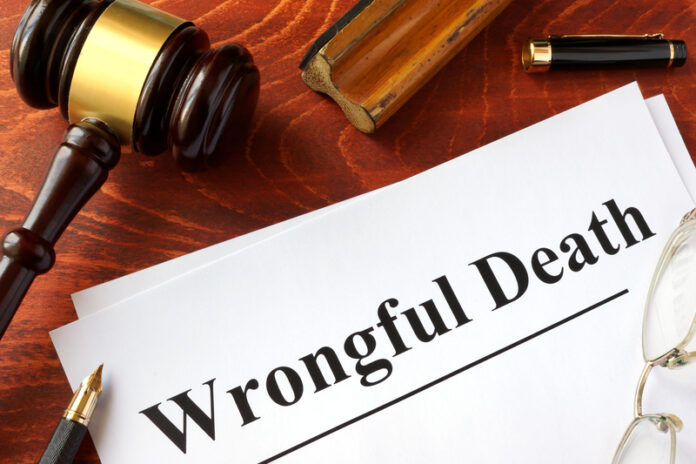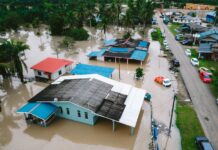
Losing a loved one is one of life’s most difficult experiences. When that loss happens because of someone else’s careless actions, the pain can be even worse. Families often seek justice through legal claims, but understanding the difference between wrongful death claims and survival actions in New Jersey is necessary. These two legal remedies serve different purposes, benefit different parties, and follow distinct legal rules.
Many people don’t know that these are two separate types of legal claims with different purposes. While they both relate to someone’s death, they work in different ways and provide different kinds of compensation. Knowing the difference is important if you’re facing this difficult situation.
Who Can File a Wrongful Death Claim?
In New Jersey, wrongful death claims work differently than in many other states. The claim must be filed by the “personal representative” of the deceased person’s estate. This is usually:
- The executor named in the will
- An administrator appointed by the court if there was no will
The personal representative files a wrongful death claim on behalf of the deceased’s dependents and family members who suffered financial losses. This typically includes the surviving spouse, children, grandchildren, parents, siblings, nieces, nephews, and others who can prove financial dependence. Proper representation is vital to securing compensation, ensuring those affected receive the support they need after their loved one’s passing.
Adam Rosengard, a dedicated New Jersey wrongful death attorney from rosengardlawgroup.com, has helped many families understand who qualifies to receive compensation in these complex cases. He can help families handle the complexities of these cases and ensure that they receive the compensation they deserve.
What Damages Can Be Recovered in a Wrongful Death Claim?
New Jersey’s wrongful death law allows families to recover economic damages, including loss of financial support, household services, medical and hospital expenses, funeral and burial costs, and loss of guidance, care, and training, especially for children who lost a parent.
However, a key limitation of New Jersey wrongful death claims is that they do not allow recovery for emotional damages such as pain and suffering, grief, or loss of companionship, which sets it apart from many other states. Understanding these restrictions is crucial when pursuing compensation.
What is a Survival Action in New Jersey?
A survival action is different from a wrongful death claim. In a survival action, the estate of the deceased person brings a claim for the pain, suffering, and financial losses that the person experienced between their injury and death.
The name “survival action” comes from the legal principle that the deceased person’s right to sue “survives” their death. It’s as if the deceased person were bringing the lawsuit.
Who Can File a Survival Action?
Like wrongful death claims, survival actions must be filed by the personal representative of the deceased person’s estate. However, any compensation recovered goes to the estate itself, which is then distributed according to:
- The person’s will, or
- New Jersey intestacy laws if there was no will
This means the money might go to different people than in a wrongful death claim, depending on what the will says or how intestacy laws work in the person’s situation.
What Damages Can Be Recovered in a Survival Action?
A survival action in New Jersey can recover damages for what the deceased person experienced before death, including:
- Pain and suffering between the time of injury and death
- Medical expenses incurred before death
- Lost wages between injury and death
- Punitive damages in cases of extreme misconduct
The experienced legal team can help families understand what compensation might be available through a survival action in their specific situation.
What are the Key Differences Between Wrongful Death Claims and Survival Actions
Now that we understand the basics of each claim, let’s look at the main differences between them.
Different Legal Purposes
The most fundamental difference is in the purpose of each claim:
- Wrongful death claims focus on the losses suffered by the surviving family members due to their loved one’s death.
- Survival actions focus on the losses the deceased person suffered between their injury and death.
Think of it this way: A wrongful death claim looks forward at what the family lost, while a survival action looks backward at what the deceased person experienced before dying.
Different Types of Damages
The types of compensation available in each claim are quite different:
- Wrongful death claims provide compensation for economic losses to the family, like lost financial support and services.
- Survival actions provide compensation for the deceased person’s pain and suffering, medical bills, and lost income before death.
A key point to remember: In New Jersey, emotional damages like grief and loss of companionship cannot be recovered in wrongful death claims, but pain and suffering experienced by the deceased can be recovered in survival actions.
Different Beneficiaries
Who receives the money from each type of claim is also different:
- Wrongful death claims provide compensation directly to family members who were financially dependent on the deceased.
- Survival actions provide compensation to the deceased person’s estate, which then passes to heirs according to the will or intestacy laws.
This means the money might go to different people depending on which claim is filed.
When to File Both Types of Claims
Families should consider filing both a wrongful death claim and a survival action, especially when the deceased lived for some time after the injury, experienced significant pain and suffering, or left behind financial dependents and heirs who might not receive compensation from just one type of claim.
Pursuing both claims allows families to seek the fullest possible compensation for all losses related to their loved one’s death, ensuring financial and legal justice.
What are the Time Limits for Filing Claims in New Jersey
Both wrongful death claims and survival actions in New Jersey must be filed within strict statutes of limitations, typically two years from the date of death. In certain cases, this deadline may be extended, such as when the cause of death was not immediately known.
Missing these deadlines can result in losing the right to seek compensation, making it important to consult an attorney promptly after a loved one’s passing to ensure legal action is taken within the required timeframe.
How to Prove Liability in Both Types of Claims
Whether filing a wrongful death claim or a survival action, proving legal responsibility requires demonstrating that the defendant owed a duty of care to the deceased, breached that duty through negligence or intentional actions, and that this breach directly caused the injury and death, resulting in damages.
Common situations leading to such claims include reckless driving accidents, medical malpractice, defective products, slip and fall incidents on unsafe property, and workplace accidents. Establishing these elements is compulsory for holding responsible parties accountable and seeking rightful compensation.
Conclusion
Wrongful death claims and survival actions serve different purposes but are both essential in securing justice for a lost loved one. While wrongful death claims compensate surviving family members, survival actions ensure the deceased’s estate recovers damages for their suffering.
Remember that in New Jersey, there are strict time limits for filing these claims, so seeking legal advice promptly can help preserve your rights while you focus on healing from your loss.
Find a Home-Based Business to Start-Up >>> Hundreds of Business Listings.
















































